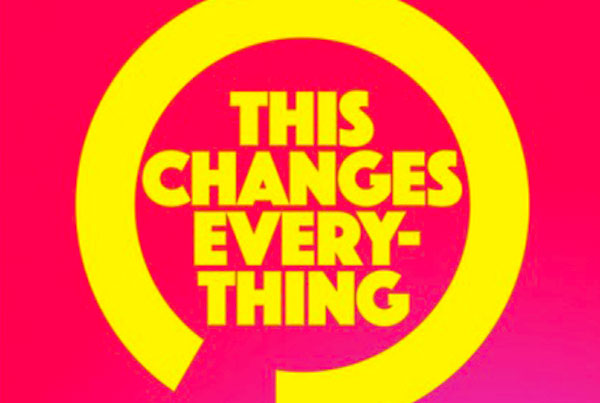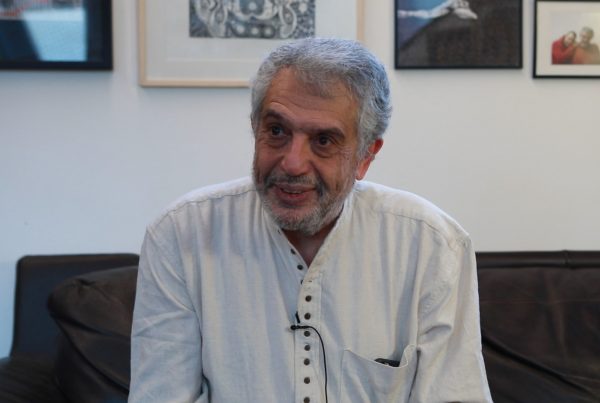Geena Davis – INTERVIEW
The Thelma & Louise star came to Deauville to premiere the documentary she produced : This Changes Everything.
An opportunity to discuss gender equality, Me Too and other issues that matter to her…
Interview by Jacques Braunstein
![]() Reading time 7 min.
Reading time 7 min.
Geena Davis
Interview
Geena Davis now has her names on the Deauville boards ! She took this as an opportunity to come defend the documentary she produced : This Changes Everything, directed by Tom Donahue. The point ? To provide a thorough analysis, with data backed by her own foundation, of female representations in the cinema industry. This post-Weinstein documentary, filled with testimonies from the bigger Hollywood stars (Meryl Streep, Cate Blanchett, Natalie Portman, Sharon Stone, Reese Witherspoon…), goes beyond well knows symptoms of sexism. Different angles are discussed in depth, from the lack of female representations in cartoons to the difficulty women have to go behind the camera, or the lack of diversity on any level of decision making. It also deals with historical circumstances that led to this devastating observation. This documentary is a true arborescence of all the missed shots of the film industry, that Geena Davis still finds « embarrassing » nowadays. With personal anecdotes, often funny but always firm, she opened up about her feelings and opinions on the Hollywood that she hopes to see evolve. Interview…

“trop de situations à Hollywood, où il n’y a qu’une seule femme impliquée dans un projet”
Despite Me Too, Times Up, the number of women behind the camera is still decreasing ?
GD : Yes it’s embarrassing, it’s an embarrassment ! Is it better in france because in america it’s like 4%. It is a global embarrassment. How long is this going to take ? It is not like anybody doesn’t know.” I think behind the camera is an example of conscious gender bias because they know what they are doing it is not like “we didn’t realise”. Nobody has come up with a solution to having more female directors so far except if somebody decides that is what they are going to do, like when they talk about John Landgraf and FX in the film about how he learned that they were doing the worst of anybody and decided let’s not let’s do better and just decided to do it and made that huge change happen so that is what it is going to take. Whereas on screen a lot of this is unconscious bias. Because it is a different problem. Mostly men are writing and producing and directing these things, they create parts for women if it has to be a woman, she’s the girlfriend or she’s the mother or whatever.
Après l’affaire Harvey Weinstein pensez-vous que nous sommes dans un moment clé où les gens sont plus enclins à ce changement ?GD : It is the first time since I have been in the industry that I notice a big change in Hollywood which is that now it is ok to talk about all this stuff it really was not ok before and i think for me and my peers we felt like you shouldn’t ever complain about anything even if you are sexually harassed or assaulted or gender discrimination or pay inequity and all that stuff. Dont complain cause they will just get somebody else, there are so few parts we have to all suck it up and behave ourselves and Weinstein and all that broke up doors to where it is finally ok to talk about it.
When Gillian Anderson finds out that she is making half of what David Duchovny makes, she immediately announced it. And that never would have happened before that and it is ok that she does it, you have permission to talk about this stuff.
Why did you emphacised the problem in the animated movies ?
GD : I noticed with my daughter I decided to show her a little kids tv and the first thing we watched i was like “why are they four more male characters than female characters ?”. I asked everybody in hollywood that i met “have you noticed how few female characters are around in series for kids ?” and every person said that is not true anymore, that has been fixed and we helped to fix it and they would name a movie that they made, their studio or whatever made with one female character as proof that gender inequality was over. So that is what started all of this for me. Not so I can educate the public but i can privately go directly to everybody making kids entertainment and share it with them and it is kind of working because they were horrified. So thats the first thing thats going to get better i think.
Do you think your foundation was a problem for your career ?
GD : No i don’t and i’ll tell you why. My Age is more a problem for my career but the thing is the way I have done it for the beginning is instead of shaming anubody or talking about a particular movie or studio that is doing a bad job, I don’t do any of that. I take the data and go directly to the creators and meet privately and say “i think you weren’t aware of this but here is the number here is how your are doing, how everybody is doing and what do you think could we add more female characters ?”.
They are horrified, I think because people who make kids entertainment care about kids and they want to make changes and they constantly invite us back “please come back to do more research, can you do a benchmark report on just us “ they really want the information and they want to work with us. I think I have only had positive reactions in Hollywood. One of the things I say to them is “an easy way to add more female characters is change the gender before you cast it, change the first name to female and you can have gender balance” and then i always say “and then cast me” because at some point this should directly benefit me, it is very nice to be noble or whatever but you know … (laughs)
To change things we have to resort to laws and quotas ?
GD : No, I think you absolutely cannot it is a creative industry, you can’t legislate that. Although in the movie, it talks about trying to legislate for directors which is a kind of a different thing because there are laws about equal employment. There’s too many situations still in the world and also in hollywood where there is one woman involved and if there is not straighten number it is kind of an impossible challenge to make change happen.In france I have learned about this 50/50 by 2020 and film festival are signing on to a quota.
Is there a special event that made you advocate for gender balance ? Is it Thelma and Louise ? You talk about Susan Sarandon as a role model. Is it the very starting point ?
GD : Thelma and Louise really had a big impact on my life and half of it was Susan. Because, for some reason, I had never met a woman like her before, I had never been exposed to a woman who just says what they think. I was raised to be so polite, and not express opinions. The other part was people’s reaction to the movie. It was so different than anything I had seen before. It really completely changed my thinking, because I realized how few opportunities women have to come out of a movie feeling inspired by the female characters. I want to keep this in mind, what are people gonna think about my character.
Is your role in Glow a part of your feminism ?
GD : It was fun ! I was a big fan of that show anyways, and they asked me to be on it for the 3rd season and I agreed. And they said “You’re character is a former showgirl” and I said “Ok, well, if so, at some point you’ve got to figure out a way for me to wear a showgirl costume”. Because, I have always loved those big outfits. Women are sexual and sexy for their whole life and they should not be cut off from that.
You played a female president on TV, do you think there’s any chance we’re gonna get one in 2020?
GD : I don’t know ! You know, I think if I had been president longer, we would already have a female president. Because, they did a survey, after the show went off the air, that found that people were 58% more likely to vote for a female candidate for president. After just one year. So, on screen impacts real life. I wanna bring the show back ! Maybe I’ll be the real president !
- Geena Davis
- Deauville
Voir aussi


